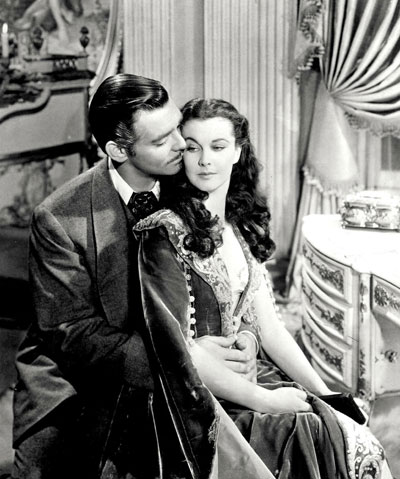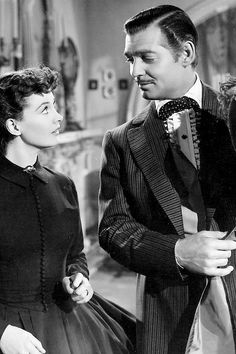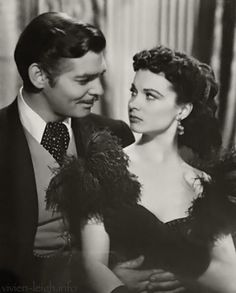Few lines in film history resonate as deeply as Rhett Butler’s famous farewell in Gone with the Wind: “Frankly, my dear, I don’t give a da**.” Spoken with a mix of resignation and finality by Clark Gable, this one-liner didn’t just conclude a love story—it cemented its place in cinematic history. Let’s explore the origins, cultural impact, and legacy of this unforgettable phrase.
The Origins of an Iconic Line

The infamous line appeared in Margaret Mitchell’s 1936 novel, Gone with the Wind, albeit in a slightly altered form: “My dear, I don’t give a da**.” When adapted for the silver screen in 1939, screenwriters elevated the phrase into what we now recognize as one of the most celebrated movie quotes of all time. Delivered by Rhett Butler (Clark Gable) to Scarlett O’Hara (Vivien Leigh), the line encapsulated years of emotional turmoil, ending their tumultuous love affair with brutal honesty.
At its core, the line wasn’t just about a man’s exasperation with his lover; it was about closure. After enduring Scarlett’s relentless self-interest and unrequited love, Rhett’s statement signified the moment he took back control of his life. It was bold, sharp, and, above all, unforgettable.
The Clash with Hollywood Censorship

The line’s inclusion in the film wasn’t without controversy. In the 1930s, the Motion Picture Production Code (commonly known as the Hays Code) governed Hollywood with an iron fist, prohibiting profane language, including the word “da**.”
Producers initially faced objections to the line, with censors deeming it inappropriate. However, in a rare twist of fate, the code was amended just weeks before the film’s release in 1939. The revised rules allowed “da**” and “hell” in cases where they were historically or literarily justified. This change paved the way for Rhett’s biting final words to make it to the big screen.
Interestingly, “Frankly, my dear, I don’t give a da**” wasn’t even the first use of “da**” in the movie. Earlier in the film, the term “da** Yankees” was heard during a parlor scene. However, it was Rhett’s declaration that made history.
Cultural Impact: A Line That Transcended the Screen
In 2005, the American Film Institute crowned the line as the greatest movie quote of all time, an accolade that speaks to its enduring power. But what makes this line so iconic?
For one, it captures the emotional climax of Gone with the Wind. After nearly four hours of drama, heartbreak, and passion, Rhett’s words brought the story to a gripping conclusion. The delivery was equally impactful. Gable’s confident yet weary tone, coupled with his departure into the fog, made the moment cinematic gold.
The line also became a symbol of defiance and liberation. For decades, audiences have interpreted Rhett’s words as a metaphor for walking away from toxic relationships, reclaiming independence, and embracing self-worth. It’s no wonder the phrase has been parodied, referenced, and celebrated across popular culture.
Criticism and Alternative Perspectives

While most consider the line an unparalleled triumph, it hasn’t escaped criticism. Marlon Brando, an acting legend in his own right, famously critiqued Gable’s delivery. He suggested that the pacing and direction made the line feel overly rehearsed. His commentary, featured in the documentary Listen to Me Marlon (2015), sparked debates among film enthusiasts.
Regardless of Brando’s critique, the line’s impact remains unshaken. It’s a reminder that cinematic moments don’t need universal approval to achieve greatness.
Why “Frankly, My Dear” Endures

What keeps this line alive in public consciousness? Its timeless appeal lies in its relatability. Almost everyone has experienced moments of emotional exhaustion or closure, making Rhett’s sentiment universally understandable.
Moreover, the line serves as a bridge between old Hollywood and modern storytelling. It showcases how the right dialogue, paired with strong acting and direction, can leave an indelible mark on audiences.
The Legacy of Rhett Butler’s Final Words
Even today, “Frankly, my dear, I don’t give a da**” continues to inspire filmmakers, writers, and audiences. It’s more than just a line; it’s a testament to the power of storytelling. Whether you’re a casual moviegoer or a die-hard classic film buff, Rhett’s words remind us of the enduring impact of great cinema.
As we revisit this iconic moment, one thing is certain: Rhett Butler’s parting words will forever be etched in the annals of film history.


